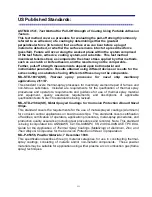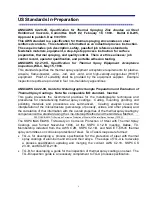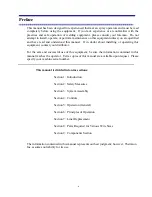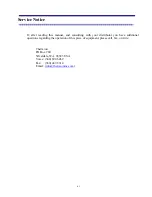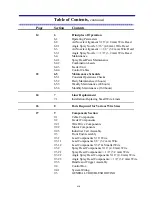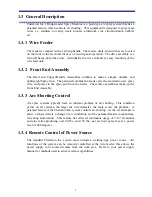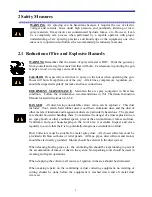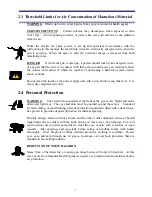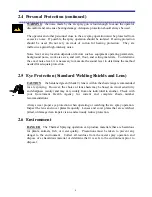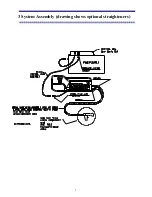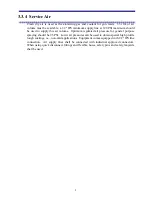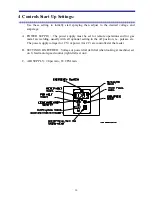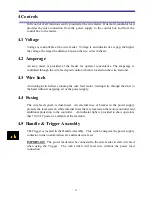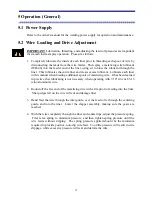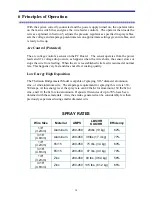
4
2.2 Reduction of Respiratory Hazards
WARNING
For shop work being performed by an operator without an air fed hood, a
suitable spray booth and an adequate exhaust system are required to avoid the toxic or
noxious effects of dust, fumes, and mists which may be generated by arc spraying. The
following
is for information only
; your Governmental Safety and Health Agency should
determine the actual requirements.
For ordinary arc spray work, air at a velocity of 200 FPM (1.0 m/s) should pass into the
opening of the spray booth. With the arc spray gun at the booth opening, the exhaust
system must be able to exhaust 200 CFM (0.1m
3
/s) of air for every square foot of booth
opening. If the booth has an opening of four square feet (.37 m²), a system that will
exhaust 4 x 200 or 800 CFM (0.4 m
3
/s) should be provided. If there is any question as to
the effectiveness of the ventilating and exhaust system or as to the presence of airborne
particles which the operator might inhale, consult a competent industrial hygienist.
Because any finely divided material may damage the respiratory system, respirators are
recommended for all thermal spraying.
IMPORTANT:
it is strongly recommended that complete and current information be
obtained from your Governmental Health Agency.
Some materials, such as beryllium, tellurium, and their oxides, are dangerous to the
respiratory system and should not be used at all except under the supervision of a
competent safety engineer.
BLASTING and SPRAYING both produce dust. Blasting of toxic materials should be
considered to be hazardous, as is spraying such materials.
Completely sealed, mask-type, pressurized respirators are recommended for all
applications of thermal spray. However, with proper ventilation that maintains proper
threshold limits of hazardous material, element type filters of the proper type will protect
satisfactorily.
Summary of Contents for BRIDGEMASTER
Page 20: ...7 3 System Assembly drawing shows optional straighteners...
Page 30: ...17 6 2 1 Angle Spray Nozzle 3 16 4 8 mm Wire Head...
Page 31: ...18 6 3 Air Nozzle Alignment 1 8 3 2 mm Wire Head...
Page 32: ...19 6 3 2 Angle Spray Nozzle 1 8 3 2 mm Wire Head...
Page 57: ...44 9 4 1 System Wiring...

